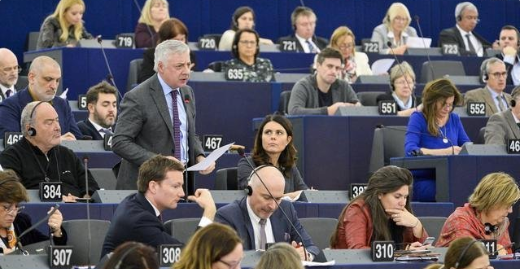
19/01/2018
EU Insight, 19 January, 2018
PARLIAMENT POSITION ON ENERGY EFFICIENCY, GOVERNANCE, AND RENEWABLES
Members of the European Parliament adopted their position on the revisions of the Renewable Energy Directive, the Energy Efficiency Directive, and the new Governance Regulation. The MEPs endorsed a proposal for binding EU-level targets of an 35% improvement in energy efficiency, a minimum 35% share of energy from renewable sources in gross final consumption of energy, and a 12% share of energy from renewable sources in transport, by 2030. To achieve them, the EU Member States will be asked to set their own national targets. The European Parliament is now ready to negotiate these binding targets with the Council.
COMMISSION ADPOTS A STRATEGY TO CURB PLASTIC WASTE
The Commission adopted a strategy on plastics as part of the transition towards a more circular economy. Under the new strategy, the EU will adopt measures to make recycling profitable for business, curb plastic waste, and stop littering and waste disposal at sea. The Commission will also scale up support of investment and innovation in plastics recycling with an additional €100 million. This series of proposals will enter the legislative process in the course of 2018 and 2019. Stakeholders are encouraged to contribute to an ongoing public consultation on single use plastics until 12 February.
PROPOSALS FOR GREATER VAT RATE FLEXIBILITY AND LESS RED TAPE
The Commission proposed new rules to give Member States more flexibility to set Value Added Tax (VAT) rates and to create a better tax environment to help Small and Medium-sized Enterprises flourish. The proposals are the final steps of the Commission’s overhaul of VAT rules, with the creation of a EU VAT area to dramatically reduce the €50 billion lost to VAT fraud each year, while supporting business and securing government revenues. With these reforms, the Commission hopes to give Member States more autonomy on rates, and give countries a more equal footing on existing exceptions to rules, known as VAT derogations.
PROVISIONAL AGREEMENT ON CO2 EFFORT SHARING REGULATION
EU ambassadors gave their support to the agreement reached between the Estonian presidency and the European Parliament on the effort sharing regulation. The draft regulation sets out binding emission reduction targets for member states in sectors falling outside the scope of the EU emissions trading system (ETS) for the period 2021-2030. This agreement brings the EU closer to fulfilling its Paris climate commitment of an at least 40% cut in greenhouse gas emissions by 2030. The regulation aims to ensure that the non-ETS sectors emissions reduction target of 30% by 2030 is reached in the effort sharing sectors, such as agriculture, and transport.
EU PROPOSES TO INVEST IN WORLD-CLASS SUPERCOMPUTERS
The European Commission presented a plan to invest in building European supercomputer infrastructure alongside EU Member States. The step is in response to a growing demand among the scientific community and industry to process a larger amount of data, which at present is done outside of the EU. Overall, around €1 billion will be invested in high performance computing to support research and innovation as well as software and hardware development. The joint undertaking EuroHPC, consisting of 13 member states, academia and industry, aims to acquire relevant systems by 2022-2023.
COMING UP NEXT WEEK
◦22 January: Foreign Affairs Council. On the agenda: Future relations with African, Caribbean and Pacific states, Libya, Middle East.
◦22 January: Eurogroup. On the agenda: European Semester, surveillance mission to Portugal, IMF Article IV consultation, EMU.
•23 January: Economic and Financial Affairs Council. On the agenda: Conclusions on the Commission’s annual growth survey, macroeconomic imbalances between Member States.
•25–26 January: Informal meeting of justice and home affairs ministers in Sofia, Bulgaria. On the agenda: Migration and asylum, Borders and security.
Karl Isaksson, Managing Partner Brussels
Contact us
- Bangalore
- Barcelona
- Beijing
- Berlin
- Bogota
- Brussels
- Bucharest
- Budapest
- Buenos Aires
- Chennai
- Copenhagen
- Frankfurt
- Genève
- Genoa
- Helsinki
- Hong Kong
- Hyderabad
- Jakarta
- Lima
- Lisbon
- London
- Luanda
- Madrid
- Maputo
- Mexico City
- Milan
- Mumbai
- New Delhi
- Oslo
- Panama
- Quito
- Reykjavik
- Rome
- Santa Cruz de la Sierra
- Santiago de Chile
- Sofia
- Stockholm
- Stuttgart
- Tokyo
- Valencia
- Washington DC
